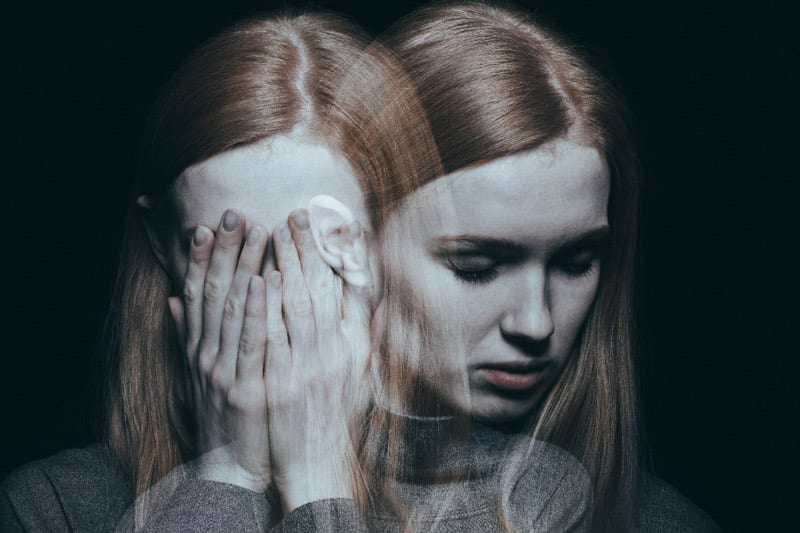A Quick Guide
Bipolar affective disorder, also known as manic depression, involves mood polarities of mania and depression. There are different types of bipolar disorder, characterized by the severity of symptoms and types of episodes. Manic episodes include elevated mood, increased energy, and risky behavior, while depressive episodes involve low mood, loss of interest, and other symptoms affecting relationships and functioning.
What is Manic Depression?
According to DSM-V, bipolar affective disorder is a serious mood condition. It involves two polarities of mood particularly mania (elated mood) and depression (low mood). Due to this, it is sometimes also called manic depression, manic depressive disorder, or manic bipolar depression. The different categories of bipolar affective and related disorders incorporate a series of episodes of mania, depression, and hypomania that occur in a cyclic nature most of the time. However, sometimes episodes may be triggered by life stressors and may not follow a predictable pattern.
Types of Manic depression disorder
Broadly, manic depression disorders have the following types:
- Bipolar Disorder I
- Bipolar Disorder II
- Cyclothymic Disorder
- Substance/medication Induced Bipolar Disorder
- Bipolar Disorder due to another Medical Condition
- Other Specified Bipolar Disorder
- Unspecified Bipolar and Related Disorders
The key difference between the above types is only with respect to the severity of symptoms and the types of episodes of mania, hypomania, and depression experienced by an individual.
Manic depression symptoms
There are different signs of manic depressive disorders. The three types of episodes that usually occur in all bipolar affective disorders include mania, hypomania, and depressive episodes. The symptoms of all three types are specified below:
Manic Episode
This episode involves the following symptoms that persist for at least one week:
a) A specific period of highly elevated mood which can even be irritable at times. There is increased energy and goal-directed activity almost every day and may require hospitalization.
b) Additionally, the person experiencing a manic episode may undergo some of the following signs which are quite prominent:
- Increased self-esteem which may appear as grandiosity
- Lowered need for sleep
- The need or pressure to keep talking
- Flight of ideas or racing thoughts
- Unimportant external events may easily distract them. The person or his family/friends may report this/
- The person may engage in high goal-directed activity which means that they may take on multiple activities and tasks at the same time.
- Some people exhibit psychomotor agitation i.e. restlessness e.g. constantly walking around, movement of hands or legs, etc.
- They also engage in activities that are risky. For example, risky sexual behavior, excessive shopping sprees, poor business investment, etc.
c) The above symptoms of manic depression have a drastic effect on the person’s relationships, work performance, and overall functioning. Moreover, some people may require immediate hospitalization to prevent harm to themselves or others.
d) Usage of a substance, medication, or a medical condition does not explain the above symptoms
Hypomanic episode
A hypomanic episode is the same as a manic episode and incorporates all the above symptoms. The difference between the two lies in terms of the following:
- A hypomanic episode lasts for four days instead of seven
- It is not severe enough to require immediate hospitalization.
- Families and friends of the victim may observe a change in his overall functioning which may not be characteristic of his/her usual self.
Depressive episode
a) Two prominent signs that are essentially present in all individuals experiencing a depressive episode include:
- Depressed mood for most of the day nearly every day
- Loss of interest or pleasure in previously enjoyed activities
b) Additionally, at least five of the following symptoms are also present for two weeks.
- Persistent low mood either self-reported or observed by others.
- Losing pleasure or interest in nearly all activities either self-reported or observed by others.
- Increase or decrease in appetite or loss/gain of weight almost every day
- Increase or decrease in sleep nearly every day
- Feeling agitated/restless or slowed down either reported by the person or observed by others.
- Experiencing fatigue or loss of energy
- Feeling worthless or excessively guilty nearly every day
- Difficulty thinking, concentrating, or making decisions most of the day almost every day down either reported by the person or observed by others.
- Having frequent thoughts of dying or committing suicide. Or planning it out or making a suicidal attempt.
c)The presence of the above symptoms cannot be explained or attributed to the effect of a substance or medication, a medical condition, or another psychological disorder
d) They also have a negative effect on the person’s relationships, work/academic performance, and overall functioning.
Watch: [Symptoms of Manic Depression]
We hope the above article was helpful for you in understanding the signs of manic depression disorders.



 Bipolar depression: What are the bipolar depression symptoms?
Bipolar depression: What are the bipolar depression symptoms?  Anger bipolar episodes in Bipolar Affective Disorder: what are they?
Anger bipolar episodes in Bipolar Affective Disorder: what are they?  Bipolar depression disorder: what are the treatment options?
Bipolar depression disorder: what are the treatment options?